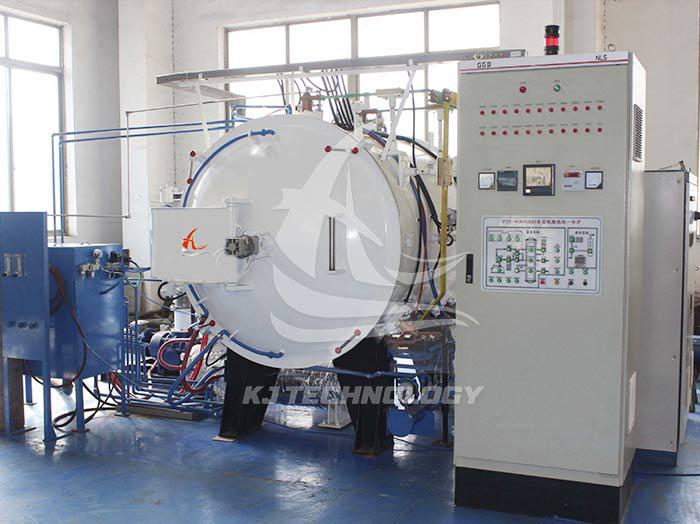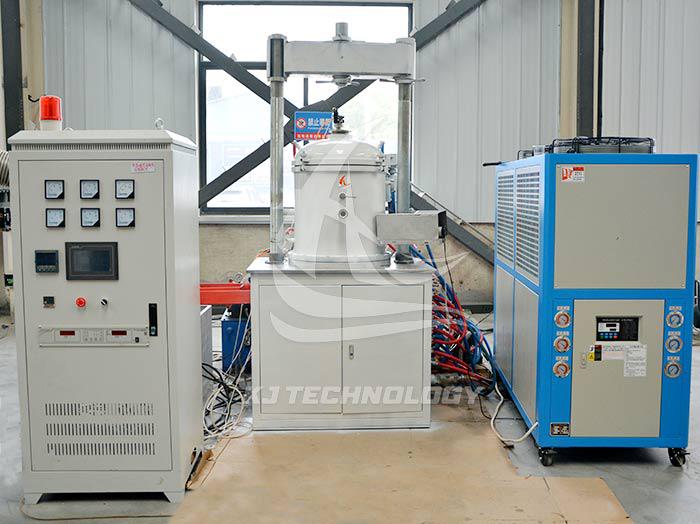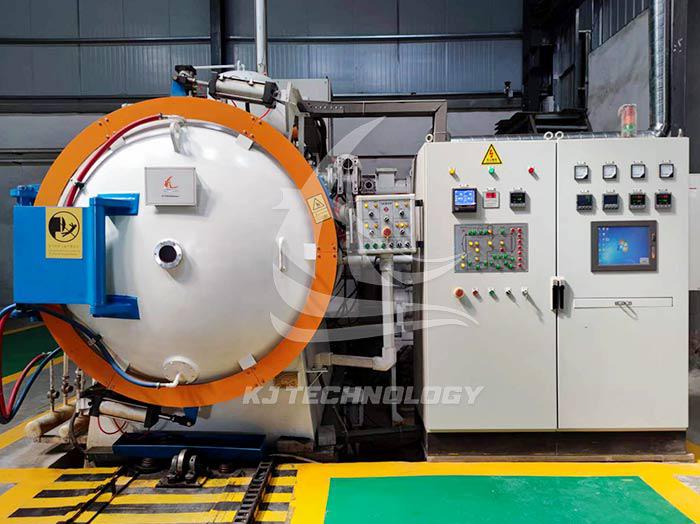Which is better, argon or nitrogen, for vacuum annealing furnaces?
 03-25-2025 Author: KJ technology
03-25-2025 Author: KJ technology
The use of argon and nitrogen in a vacuum annealing furnace has its own advantages and limitations, and which one is better depends on multiple factors such as the annealing material, annealing purpose, and cost considerations.
Advantages of argon gas
Preventing oxidation: Argon is an inert gas that can effectively prevent oxidation reactions of metals during annealing, thereby maintaining the purity and performance stability of materials.
Cleaning effect: Argon molecules can collide and adsorb impurities such as dust and oxides on the surface of materials during heating, playing a role in cleaning the surface of materials.
Protecting electric heating elements: Argon gas can be used as a protective gas to reduce the oxidation and corrosion of electric heating elements at high temperatures, extending the service life of equipment.
Cooling effect: During annealing, argon gas can also help cool the material to a certain temperature, avoiding excessive heat treatment and preventing material deformation.
Advantages of Nitrogen
Lower price: Compared to argon, nitrogen is more economical and can reduce the cost of annealing treatment.
Preventing decarburization: Although nitrogen may cause the formation of nitrides on the surface of certain alloys at high temperatures, in some cases it can prevent metal decarburization and maintain material properties.
Improving quenching hardness: When nitrogen is used as a cooling medium, it can increase the quenching hardness of steel parts, which is beneficial for obtaining better mechanical properties.
Choose Suggestions
Considering material properties: For materials that are prone to oxidation, argon gas may be more suitable; For materials that require decarbonization prevention, nitrogen may be a better choice.
Considering the purpose of annealing: If the main purpose of annealing is to eliminate stress, improve cutting performance, or enhance toughness, then the selection can be based on the specific material's suitability for argon and nitrogen gas. If higher quenching hardness is required after annealing, nitrogen may be more suitable.
Considering cost: In the case of limited costs, nitrogen may be a more economical option.
In summary, there is no absolute answer to which is better between using argon or nitrogen in a vacuum annealing furnace. In practical applications, it is necessary to comprehensively consider and select based on multiple factors such as specific annealing materials, annealing purposes, and cost considerations.








